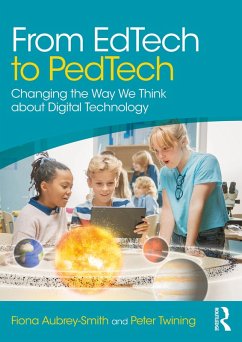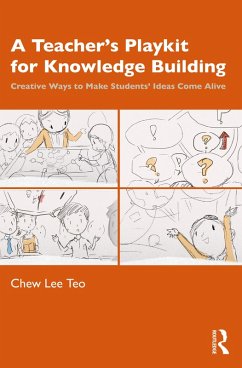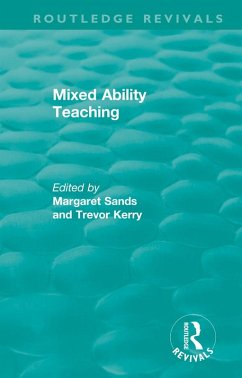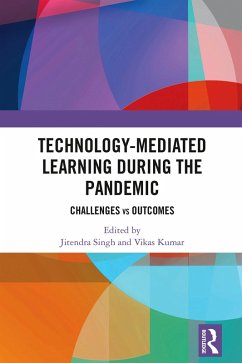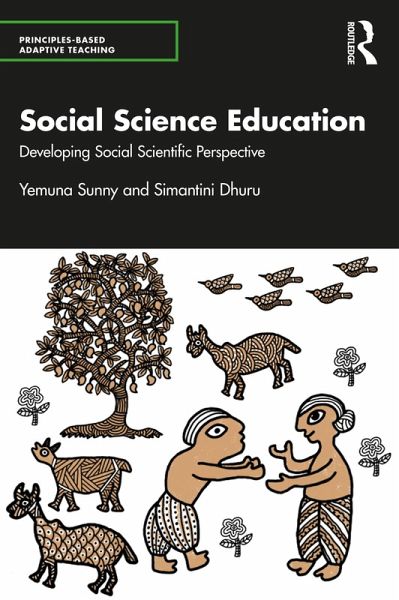
Social Science Education (eBook, ePUB)
Developing Social Scientific Perspective
Versandkostenfrei!
Sofort per Download lieferbar
38,95 €
inkl. MwSt.
Weitere Ausgaben:

PAYBACK Punkte
19 °P sammeln!
This book provides an introduction into social science pedagogy in India. It delves into the interrelationships between society, social relationships, education, and learning.Social science education in schools helps build a critical understanding of social processes and institutions. This book critically examines school spaces and approaches to social science teaching and pedagogy in Indian schools. It outlines distinguishing features, differences, and similarities in pedagogical models and also explains how these varied approaches can be applied in the teaching process. The book also address...
This book provides an introduction into social science pedagogy in India. It delves into the interrelationships between society, social relationships, education, and learning.
Social science education in schools helps build a critical understanding of social processes and institutions. This book critically examines school spaces and approaches to social science teaching and pedagogy in Indian schools. It outlines distinguishing features, differences, and similarities in pedagogical models and also explains how these varied approaches can be applied in the teaching process. The book also addresses the challenges and possibilities of integrating technology in teaching social sciences.
Part of the series, 'Principles-based Adaptive Teaching', this book will be of interest to students and teachers of education and the social sciences. It will also be of interest to teachers, educators, curriculum designers, policy makers and social science course developers, NGOs, and public and private sector bodies who focus on teaching and learning practices.
Social science education in schools helps build a critical understanding of social processes and institutions. This book critically examines school spaces and approaches to social science teaching and pedagogy in Indian schools. It outlines distinguishing features, differences, and similarities in pedagogical models and also explains how these varied approaches can be applied in the teaching process. The book also addresses the challenges and possibilities of integrating technology in teaching social sciences.
Part of the series, 'Principles-based Adaptive Teaching', this book will be of interest to students and teachers of education and the social sciences. It will also be of interest to teachers, educators, curriculum designers, policy makers and social science course developers, NGOs, and public and private sector bodies who focus on teaching and learning practices.
Dieser Download kann aus rechtlichen Gründen nur mit Rechnungsadresse in A, B, BG, CY, CZ, D, DK, EW, E, FIN, F, GR, HR, H, IRL, I, LT, L, LR, M, NL, PL, P, R, S, SLO, SK ausgeliefert werden.





